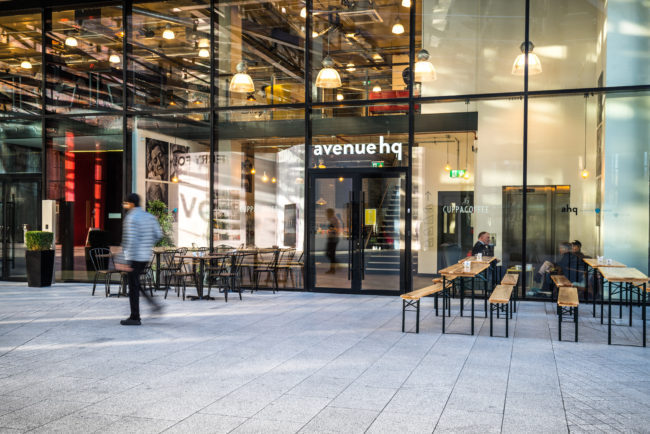
Secondary markets are headed for a flexible workspace boom. As detailed in a recent Instant Office report, Europe is forecast to see 255 million square feet of flexible space in 2019 – a 12% increase – with over 70% of this space being available in smaller secondary cities.
What does this mean for coworking spaces opening, expanding, or scaling into secondary cities, in the UK and beyond?
We connected with three workspace operators experienced with secondary UK markets to learn more.
Abi Inglis is Community Lead at Avenue HQ; Seb Royle is founder and CEO of PLATF9RM; and Tom Ball is founder of Desklodge. The three offered insights into the unique challenges of launching and scaling in a secondary market, what opportunities exist in these markets, the importance of bringing coworking to smaller markets and much more.
GCUC UK: What are the unique challenges for space operators in opening or expanding to secondary markets?
Abi Inglis: There are probably a few, but the one we believe is the most challenging is education around the benefits of coworking and shared workspaces. In secondary markets there is a larger gap around the knowledge and benefits of a space like ours, so bridging that gap through projects and PR is vitally important. As well as this, there will always be serviced office providers in secondary markets; their price point will be lower, so we need to ensure that potential members fully understand the value of the whole wrap-around package that comes with a coworking space like ours.
Seb Royle: Apart from the usual challenges of identifying and securing buildings, and getting your funding right, the key for us has been putting lots of effort into the community as a whole. Regional markets have different characteristics depending on where they are, and how they have grown and evolved. We have two locations, so far, across Brighton and Hove, and we spend as much time understanding and being part of our community as looking after our members.
Tom Ball: Market size seems to have a huge impact on the likely experience. London has apparently between 2,000 and 3,000 coworking spaces now (Many different numbers being quoted at recent conferences). So the market is mature and well known – but very competitive – with many well funded companies able to “buy business” and undercut what is commercially viable
Secondary cities will have a few coworking spaces, but even in Bristol it’s not as well known. As soon as you move out to towns, it appears to be a very different market. People are used to and understand their own traditional office – to pay more money for less private space seems to be more of a challenge. Often most people drive (57% of commutes are by car) and are used to having their own private space, versus city dwellers being more used to sharing every part of their day.
There is a separate challenge about car parking. Coworking generally increases the density of people in a building – they have less space each and when one user is not there, another is. This increases the need for car parking, or increases the need for a commutable location.

What kind of opportunity exists for shared workspaces in secondary markets, both now and moving forward?
AI: There are loads of opportunities. We have seen with our three sites the real appetite that exists. Coworking is a global movement and that isn’t purely reserved for the global cities. More and more, people are adopting this different way of working and really reaping the benefits that it offers. As well as this, with the massive advancements in technology, companies are realising that they no longer need centralised, massive head offices. Instead, satellite offices in different cities can be even more beneficial for their business, and the productivity of their employees.
SR: We think there is huge potential for coworking and shared workspace outside of the UK’s major cities. Modern work practices mean there is more flexibility, but working from home can be extremely isolating and unproductive. Not everyone now has to commute into their nearest city. Instead, they can live and work close to home.
With room to expand into shared office space and the natural buzz of our locations, companies are moving from those quiet traditional small office spaces above shops and into coworking spaces like ours.
TB: At the moment, most coworking spaces are in cities, due to the density of people. I think there is a very exciting opportunity to have centres opening in smaller and smaller locations. Obviously freelancers can be where they like generally. In companies, the old version of flexible working only allowed people to be at their home or in the office. More and more companies are seeing the benefits of letting their team be truly flexible. As more coworking spaces open, I’m expecting more people to be more flexible — to join their team part of their day and week (which may be in a coworking space) but to use a different coworking space nearer their home when that suits.
Most of the drawbacks of going to an office (commuting / being interrupted by coworkers etc.) and most of the drawbacks of being at home (lonely / lack of work-life balance / productivity) go away when you’re in a coworking space. This is obvious to us in the industry, but as more employers embrace it, we’re seeing more solo employees.
We had someone working in London who wanted to move to Bristol and work remotely. His employer said no so he reluctantly resigned. His employer realised they really didn’t want to lose him and agreed to a trial. He ended up not only managing his old team back in London remotely, but hiring a co-worker as a micro, remote team.
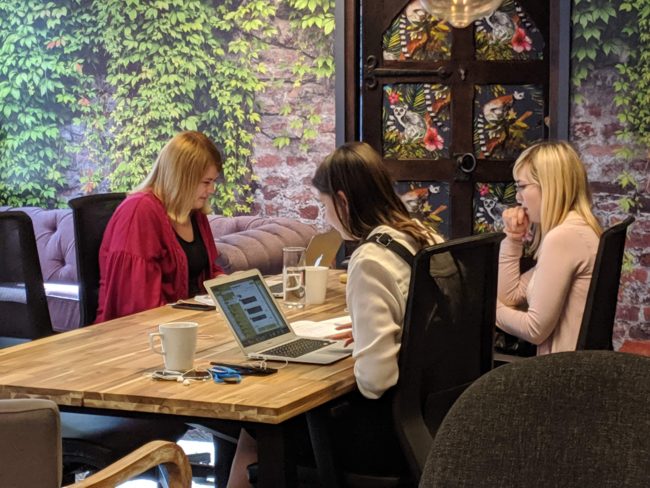
Now that you’re established in a secondary market or markets, how are you approaching expansion to other towns and regions?
AI: We are going for it. From our point of view, we’ve seen how fantastically it has worked and is still working in the cities that we’re in, so we know there is an appetite. And if anything, the secondary market is underserved, and we want to be the solution to that. For us, it’s all about going into the right place at the right time, and there are so many factors that accompany that. The location has to be perfect, the building has to be right, the business community itself has to be strong…the checklist goes on and on.
SR: We are taking our time over this. Researching the types of locations where we think our approach will work, identifying unique buildings, and finding markets where we can make a difference.
We have nearly three years of understanding how our model works and what makes the best space. We know our design style inside out, which amenities are needed, and most importantly how to turn a profit. Without that, there will be no expansion.
TB: We are looking at three strands – and are still debating the order or how to weight them: 1.) Opening more space within Bristol, but in different areas of the city. 2.) Opening space in satellite towns around Bristol. 3.) Opening spaces in nearby cities.
We like to find a number of existing business centres because we do larger centres. I believe most towns will have coworking spaces of different sizes over time. To test a new location, I believe in starting with the community by bringing people together regularly before you’ve signed a space. This is a great way to find and test the market.
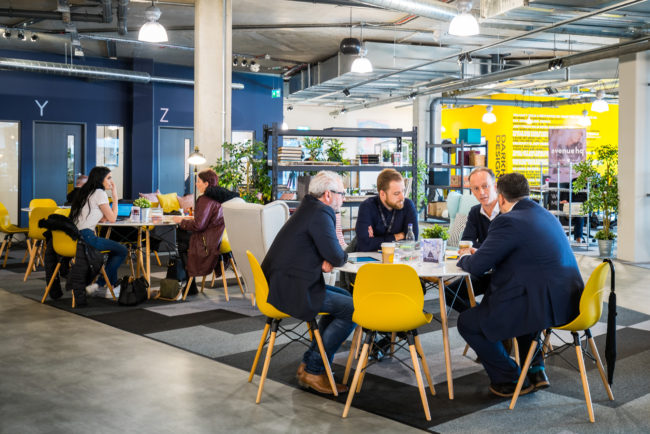
Why is it important to bring coworking and shared workspace to these markets?
AI: We believe it is incredibly important to bring collaborative workspaces to these markets, because the demand is so present. There are over two million freelancers in the UK and 60% of those are outside of the capital. Coworking spaces can have such a great impact on a freelancer’s daily life, by reducing isolation, increasing business growth opportunities and so much more. That is why it’s important for us to operate where we are, and look for new markets to serve. As well as this, with the growing awareness of flexible working, larger companies are increasingly seeing the value in placing their employees in coworking spaces.
SR: Today’s modern workers deserve a good work environment, even if not in a major city. We’re online and spending more time on our laptops, so why be stuck to a desk? Coworking spaces create a sense of community that members can choose to be part of, and to what extent. They don’t have to commute now. There is a different way.
TB: Two big things for me: Commuting and community. Commuting is one of the biggest causes of stress. Working near home would significantly reduce the time, stress and pollution associated with daily commuting. According to research carried out by O2, 52% of all of their carbon emissions came from staff getting to work each day.
Communities and local shops and businesses are at risk of being empty during the day, until exhausted commuters return in the evening. Being home alone is lonely. Letting people work in coworking spaces near their home gives happier people and supports local businesses.
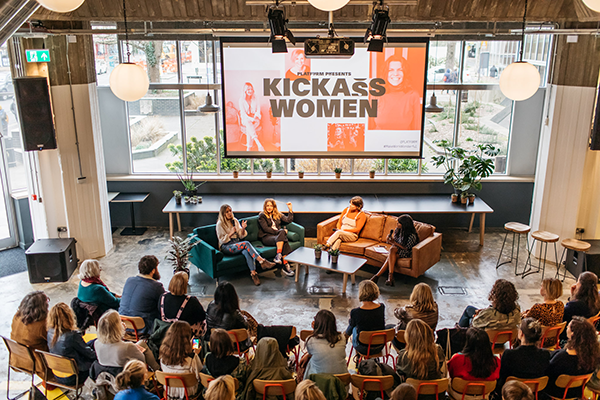
How do you educate people in smaller towns and non-urban markets about coworking? What’s your approach to attracting members?
AI: Get them through the door. Once people are through the doors of our spaces, they begin to understand the many, many ways in which they can use our facilities and interact with our communities and ourselves. The best way to understand our product is seeing it in action. While our messaging very clearly promotes the benefits of coworking, the best way to fully appreciate it is seeing the space.
SR: We’re fortunate to be based in Brighton, with the highest number of SMEs/freelancers outside of a major city. Our city is very progressive and just one hour’s train ride from London, so there is a metropolitan feel here. Coworking is no longer a new term for many in our region.
Our approach to attracting members has been putting them first. We create great content, cultivating a community both off- and online. As a coworking operator we’re uniquely advantaged, as we have our members to talk to at all times. We listen to their feedback to make their experiences better.
We have an extensive events programme that spans social, food, sport, business support and wellbeing. We don’t just stay in our bubble – we get involved with all this city has to offer, including Brighton Festival, The Great Escape, Digital Festival, PRIDE etc.
TB: Office brokers are still key for offices, although there is still a lot of educating to explain the value of the space, services and people in the space but outside the four walls of your office.
True coworking for freelancers and remote workers appears just as easy for people to grasp. We’ve tended to create inspiring spaces and include “Instagramable” areas to help encourage people to share what we’re doing.
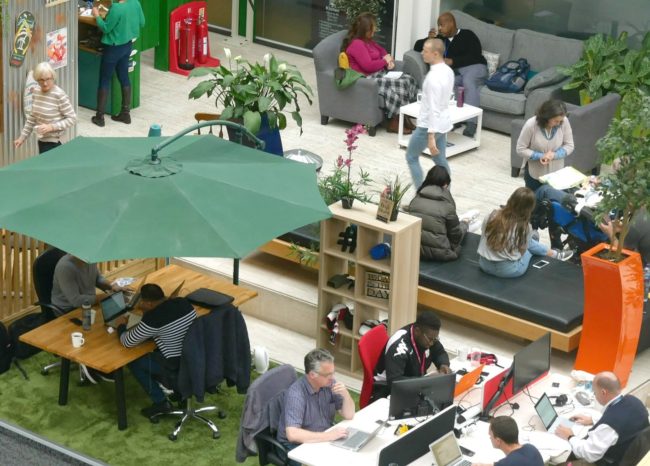
Do you have any advice for other workspace operators considering launching or expanding in secondary markets?
AI: For those thinking about launching into secondary markets, it’s simple: get to know your cities and towns. Understand the communities that are already there, understand the freelancer community, the business community and what your demand is. It’s really important to spend time, and a lot of it, in the place you will be creating a workspace.
Another thing we have learnt the importance of is having super strong foundations, and consistency, in your company. You need to know exactly what it is that you do, and how you do it. Make sure that your second, third and fourth site match up to the greatness of your first.
SR: Become part of the market you are considering launching into. Meet people, do the groundwork. You need to become part of the community, not arrive as a spaceship.
TB: Start with and focus on the community. Try to bring together people who are passionate about the local community and know and want to know people locally. Attend and host events. In a way it’s easier to talk to people before you have a space then when you do. Before you sign a building, you’re one of them, bringing new life to their town. After you’ve signed it, there’s a danger you’re seen as selling a (much needed) service.
The Global Coworking Unconference Conference (GCUC) comes to London 23-24 September. Reserve your tickets now to learn more about the UK workspace sector and connect with its key players.
[ssba-buttons]
